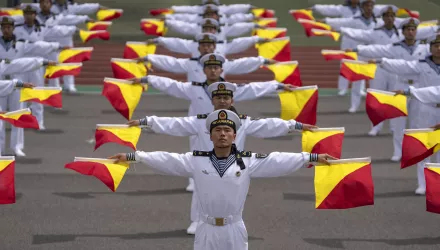Broadly defined, power is the ability to affect others to obtain the outcomes one wants. One can affect other individuals' behavior in three main ways: by threatening coercion ("sticks"), by offering inducements or payments ("carrots"), and by by making others want what one wants. A country may obtain the outcomes it wants in world politics because other countries want to follow it. They may display this desire by admiring the country's values, emulating its example, or aspiring to its level of prosperity and openness. In this sense, it is not only important in world politics to force other countries to change by the threat or use of military or economic weapons, but also to set the agenda and attract others. This "soft power"—getting other countries to want the outcomes that a particular country wants—co-opts people rather than coerces them. In the debate about the rise of Chinese power and how it will affect the United States and global stability, one question that has received increasing attention in both countries is precisely that of China's soft power. After more fully exploring soft power itself, this article explores the various aspects of this kind of power when applied to the Chinese context. To conclude, it considers how China can best use its soft power to be beneficial to the international community.
Nye, Joseph and Wang Jisi. “Hard Decisions on Soft Power: Opportunities and Difficulties for Chinese Soft Power.” Harvard International Review, Summer 2009
The full text of this publication is available via Harvard International Review.





